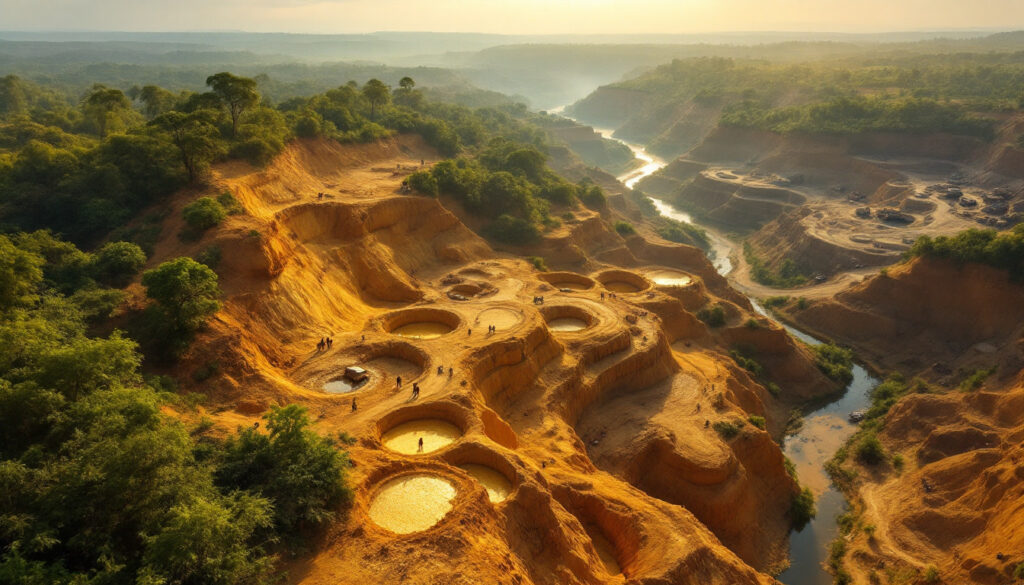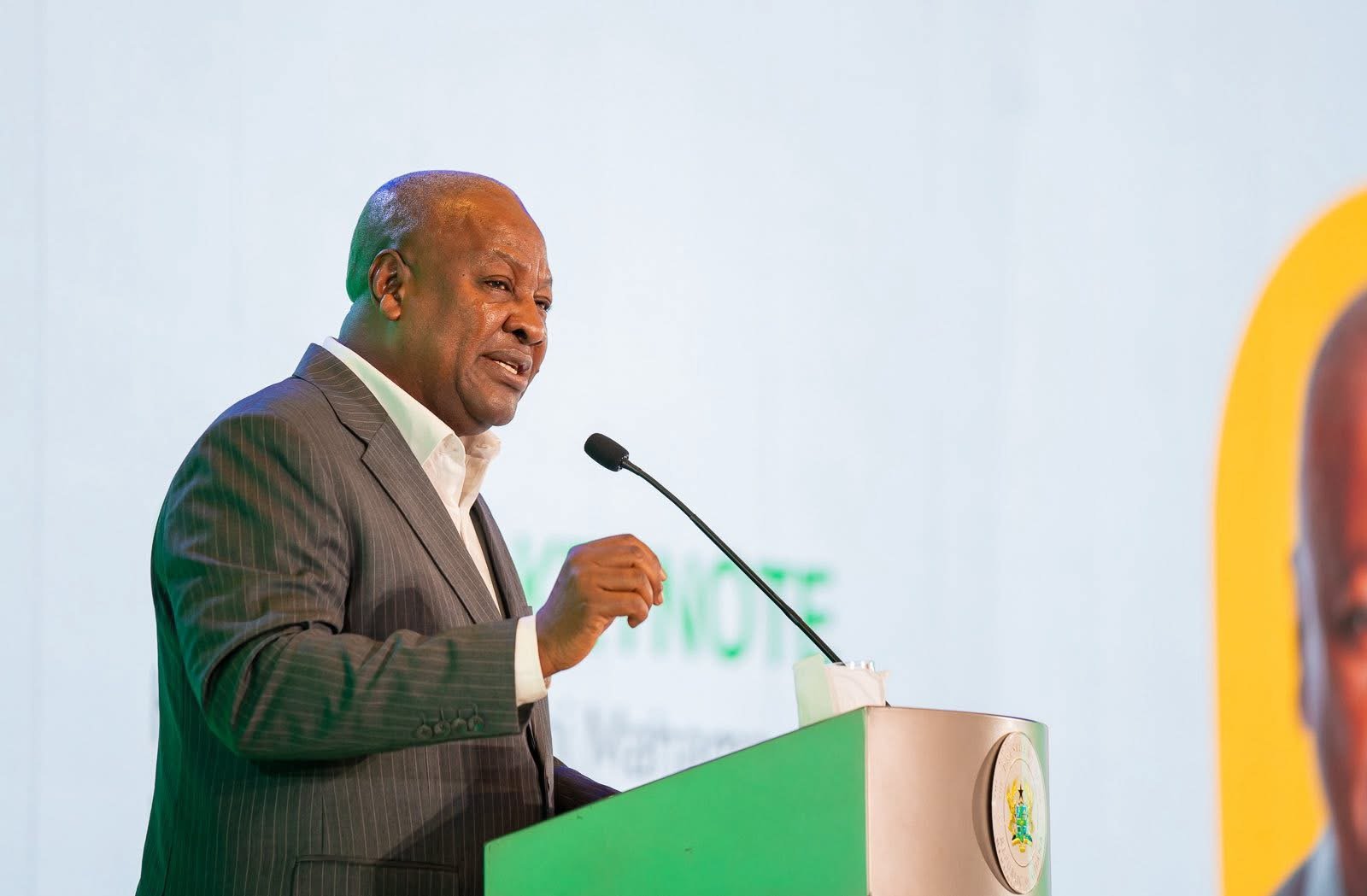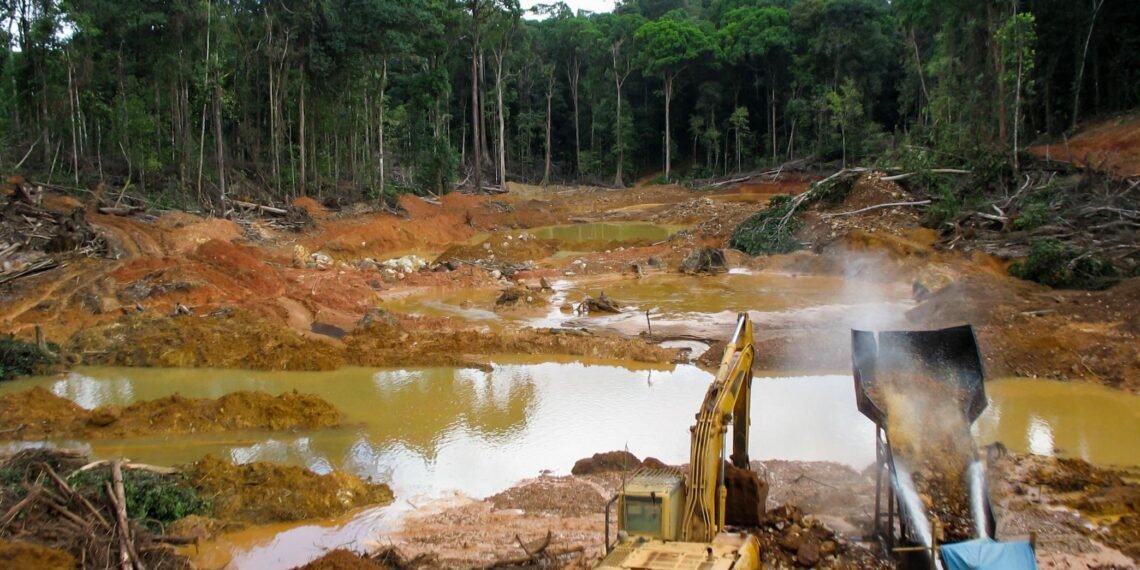The Ghana Coalition Against Galamsey (GCAG) has issued a sharp rebuke to President John Dramani Mahama’s recent comments on illegal mining, warning that the government’s “uninspiring posture” risks emboldening offenders and deepening the country’s environmental emergency.
At a press conference held at the Ghana International Press Centre on Monday, 15th September 2025, the coalition made up of civil society groups, traditional leaders, youth bodies, and academics declared that Ghana is “facing unprecedented environmental terrorism” due to galamsey and accused the administration of showing little urgency in confronting the menace.
The coalition’s criticism follows the President’s remarks at a media encounter on September 10, where he defended his administration’s decision not to declare a state of emergency on galamsey.
President Mahama argued that existing laws gave the government sufficient powers to tackle the issue and that emergency powers should be a “last resort.”

But the coalition disagreed, describing the President’s comments as deeply disappointing.
“Wittingly or unwittingly, these statements seemed to support the environmental terrorism and menace of galamsey.
“His narratives, and de facto justifications, will only serve to give oxygen to impunity, rolling back years of governmental messaging to make galamsey unpopular. This is deeply unfortunate and regrettable.”
Ghana Coalition Against Galamsey (GCAG)
Environmental and Economic Fallout

The coalition painted a grim picture of the consequences of unchecked illegal mining. According to the statement, over 50 forest reserves have been affected, farmlands for cocoa, rubber, and oil palm are being lost, and more than 20 million people are at risk of losing access to clean water.
“The prolonged tolerance of illegal and irresponsible mining has led to severe environmental damage, including pollution and destruction of water bodies.
“Farmers report a lack of arable land, while the risks of environmental and climate disasters are growing.”
Ghana Coalition Against Galamsey (GCAG)
Recent data from the Ghana Water Company Limited (GWCL) was cited as evidence of the crisis.
The Kwanyarko Water Treatment Plant recorded turbidity levels of 32,000 NTU, rendering the water undrinkable. The Bunso Water Plant has been shut down for months, while Kyebi’s facility operates at bare minimum capacity.
“These are not isolated events. They are the lived realities of millions of Ghanaians, and they underscore that we are no longer battling an environmental crisis alone, but also fighting for economic justice and the very survival of our society.”
Ghana Coalition Against Galamsey (GCAG)
The coalition linked the galamsey menace to rising utility costs, pointing to the Public Utilities Regulatory Commission’s consideration of a Ghana Water Company request for a 280% increase in water tariffs.
GCAG said the tariff hike, directly tied to the costs of treating polluted water, amounts to “an invoice being presented to the Ghanaian people for a mess we did not create.”
“This is not simply about tariffs. It is an admission of catastrophic failure. Citizens are being forced to pay for the crimes of others, while companies and individuals who profit from illegal mining walk free.”
Ghana Coalition Against Galamsey (GCAG)
Call for Bold Leadership

The coalition did not mince words about the need for stronger leadership. “If we cannot confront the galamsey crisis with bold actions, then what kind of nation and people are we becoming? What kind of government would we be said to have?” the group asked.
GCAG challenged the government to resist “short-sighted economic prospects of gold” and instead focus on long-term national survival.
“We cannot continue with half-hearted actions while the other sectors of our economy are battered to the detriment of citizens.”
Monday’s press conference is part of what the coalition describes as an intensified national campaign against illegal mining.
It pledged to mobilize media, organized labour, professional bodies, and traditional authorities to amplify the message and pressure government into urgent action. The coalition concluded with a stark warning.
“This is not merely an environmental issue. It is about life, livelihoods, and the survival of our future generations.
“The time for bold, uncompromising action is now.”
Ghana Coalition Against Galamsey (GCAG)
As the galamsey crisis deepens, the battle lines appear increasingly drawn between civil society’s demand for radical interventions and government’s insistence on incremental enforcement.
Whether the state will recalibrate its approach in response to mounting pressure remains to be seen.
READ ALSO: Market Cheers as Ghana’s Treasury Auction Breaks Four-Week Drought with 15.8% Oversubscription



















